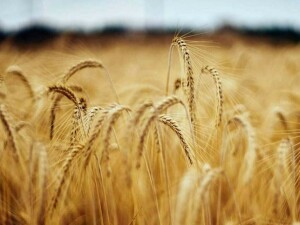Today, one of the biggest threats to world's agriculture in general and Pakistan's in particular is climate change because rainfall volatility, increased drought and rising temperatures - all signs of climate change - affect crop yields that in turn hamper food production. Climate change is hurting crop production, distribution and yields directly through changes in temperature and precipitation and indirectly by increasing insect pests, diseases and weed outbreaks. According to estimates, in 20 to 25 years, the world will get to a point in some places that either it will be too hot, too dry, too wet, or too cold for the crops farmers are planting. The alarming thing is that climate change is happening very fast.
Like always, science and innovation, which have always been the key forces behind agricultural growth, are coming to help and are already playing a critical role in combating the negative effects of climate change. Since the cellular and molecular revolution of the last century, conventional breeding has been augmented by forms of biotechnology - cell and tissue culture, marker-assisted selection and genetic engineering. Today, it is only biotechnology, the fastest adopted crop technology in the world, which can help address food insecurity in the face of climate change because it is this science that has delivered technologies and solutions which were unimaginable in the past.
The past 19 years (biotech crops were introduced in 1996) already have seen revolutionary biotech innovations worldwide that have helped farmers improve their harvests, cultivate more sustainably and feed the world a more nutritious diet, and today one of the key targets of biotechnology is minimizing the impacts of climate change on agriculture. As expected, biotechnology has already helped mitigate climate change by reducing greenhouse gases. The biotechnology scientists are already helping to provide control of biotic factors and increase yields, produce crops that are capable of tolerating the effects of drought.
Crops produced through biotechnology that are able to grow in harsh environmental conditions, such as drought, have already been developed and commercialized. Since 2013, US farmers are successfully planting the biotech drought-tolerant maize in the Corn Belt-a region of the Midwestern United States known for drought. Beginning in 2017, some African countries are scheduled to receive the first biotech drought tolerant maize, a food staple depended on by more than 300 million poor Africans. Field trials of drought-tolerant wheat in Australia have shown up to a 20 per cent yield increase compared with conventional varieties of that area. It is expected that the first home-grown drought tolerant sugarcane will be officially planted in Indonesia this year. Geneticists are also developing GM cassava varieties, which could be very important for Sub-Saharan Africa. And while biotechnology research is continuing around the world, more and more drought tolerant crops are being developed with enormous potential of success.
Droughts, floods, and temperature changes are predicted to become more prevalent and more severe as we face the new challenges associated with climate change, and hence, there will be a need for faster crop improvement programmes to develop varieties and hybrids that are well adapted to more rapid changes in climatic conditions. Several biotech crop tools and techniques, including tissue culture, diagnostics, genomics, molecular marker-assisted selection (MAS) zinc fingers, and TALENS, and biotech crops can be used collectively for 'speeding the breeding' and help mitigate the effects of climate change. Biotech crops are already contributing to reducing CO2 emissions by precluding the need for ploughing a significant portion of cropped land, conserving soil, particularly moisture, and reducing pesticide spraying as well as sequestering CO2.
If we look at Pakistan, climate change is posing serious threats to our country's agricultural productivity and food security. Although devastation of climate change cannot be avoided totally (for example, in case of sudden flash floods washing away crops) but its effects can certainly be mitigated to a large extent using the help of modern tool of biotechnology. Later helps in developing high temperature tolerant seeds/crops which are capable of cultivation under stressed water availability. Droughts and floods are predicted to become more prevalent and severe as our country faces new challenges associated with climate change, and hence, there will be a need for faster crop improvement programmes. New developments in agricultural biotechnology can play a role in helping our farmers produce crops that use water more efficiently, reducing the negative consequences of drought, which is projected to worsen further in Pakistan in the years to come due to the expected changes in climate change. With temperatures rising and extreme weather becoming more frequent, 'climate-smart agriculture' is need of the hour in our country. According to local experts, several biotech crop tools, including tissue culture, diagnostics, genomics, molecular marker-assisted selection and biotech crops can be used collectively for speeding up the breeding and help mitigate the effects of climate change. In a nutshell, biotechnology can make Pakistani crops climate resilient and drop in production can be addressed with use of biotech crops.
The effects of climate change will only continue to expand the need for biotechnology in Pakistan, which unfortunately still lacks a national strategy and plan of action to use this revolutionary science. Agricultural biotechnology, which needs immediate attention of researchers, policymakers and industry, can play a key role in mitigating the devastating impacts of climate change on agriculture and resultantly enhance food security in Pakistan, but only if it receives sufficient resources and support for its development.
(The writer is a PhD and executive director of CropLife Pakistan)
BR100
12,596
Decreased By
-35.4 (-0.28%)
BR30
39,133
Decreased By
-311 (-0.79%)
KSE100
118,442
Decreased By
-327.6 (-0.28%)
KSE30
36,376
Decreased By
-156.5 (-0.43%)























Comments
Comments are closed.